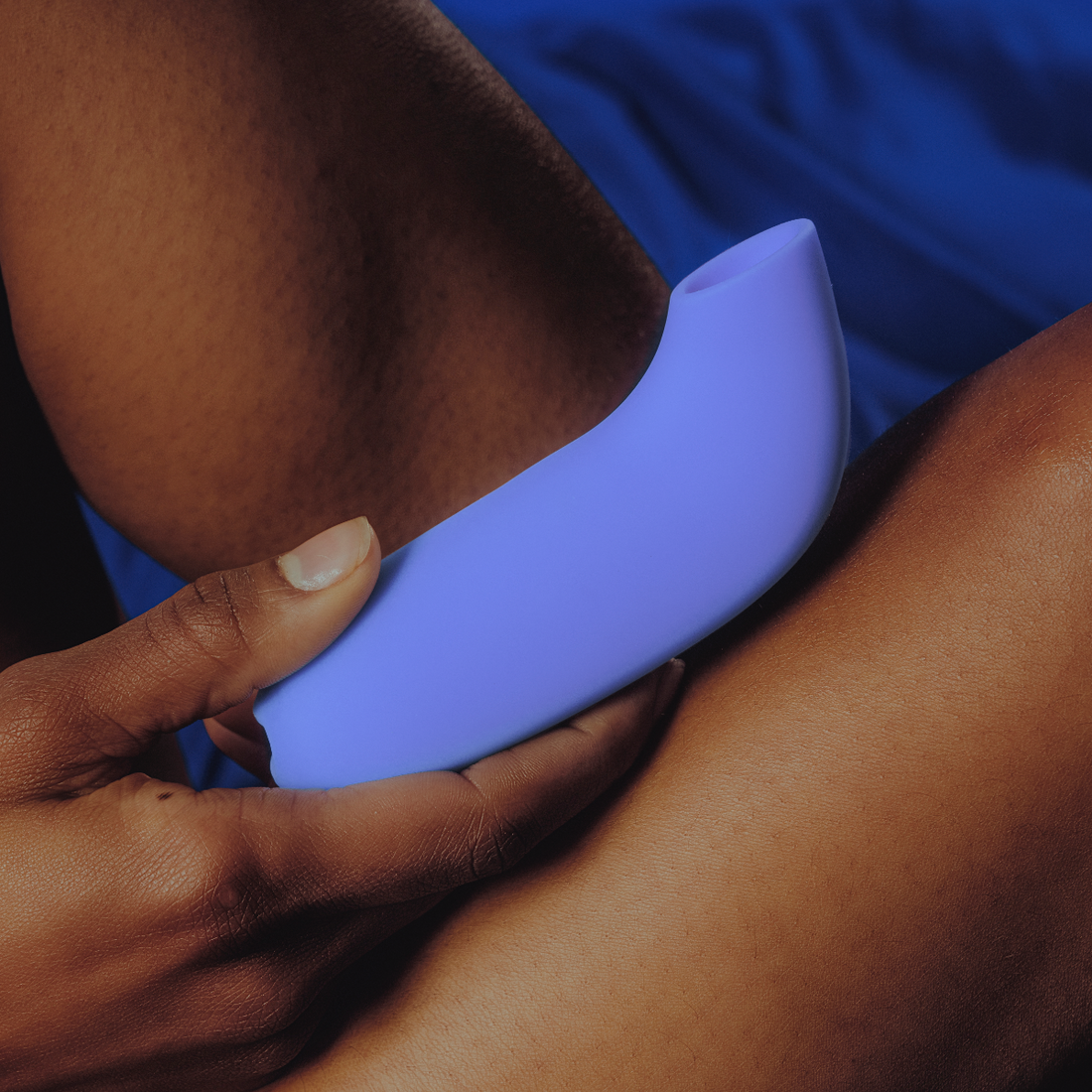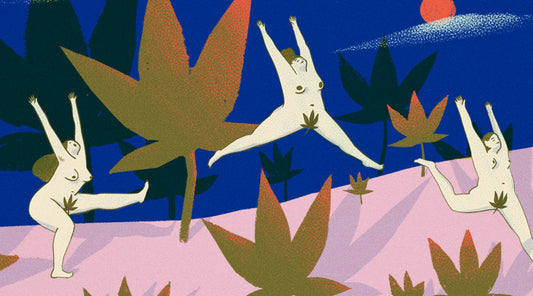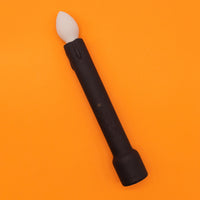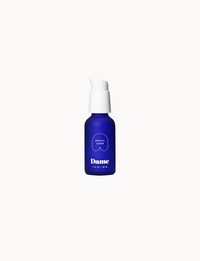According to the
American Psychiatric Association, Seasonal Affective Disorder (SAD) is a common subset of Depression triggered when a change of season disrupts an individual’s biological clock. This is more common in winter months, but sometimes happens with the shift to summer. While this shift happens to everyone, around 5% of adults living in the United States struggle with a chemical imbalance that results in symptoms that are similar to those of other forms of depression.
Here in the northern hemisphere, as days shorten and nights get longer and darker, those of us who suffer from SAD and other forms of chronic depression will be feeling it across every aspect of our lives. Especially in the sexual parts.
Chronic forms of depression like Seasonal Affective Disorder can, on one hand, feel defeating. You’re probably always going to be dealing with depression at some point or another, and for folks who experience SAD, that can mean that almost half of your year is impacted by depression to some degree. Looked at another way, however, knowing that you’ll be struggling with depression at some point — and especially at specific times, such as weather shifts — means that you can prepare yourself to better work with your depression ahead of time.
I don’t, as far as I’m aware, experience SAD, but I do experience chronic depression, which I can tell you is
very unsexy most of the time. It often means comfort eating junk food because I just don’t have the energy to prepare food — that whole party size bag of Doritos is dinner, right? — and at bad times, like right before sleeping. In the morning, I tend to feel like I’m carrying around a brick of carbs in my stomach, I’m dehydrated, and oh right — I forgot to take my makeup off last night. My energy is low, I’m hangry, and being near other humans is at once the last thing I want and the thing I really need the most.
I recently spoke with writer, speaker, and mental health advocate JoEllen Notte of
The Redhead Bedhead, who is currently working on a book about Sex and Depression, on the subject. When I asked her how folks experiencing chronic forms of depression like SAD and their partners can counter-balance the impact their depression can have on intimacy, she gave me three suggestions.
It starts with learning how to make conscious sexual decisions. “A lot of the information we see out in the world makes it sound like ‘depressive symptoms equals no sex,’ and it can be easy to fall into the trap of saying ‘welp, I’m feeling depressed so sex is off the table,’” Notte told me in a recent email. “At the same time, a lot of advice floating around is rooted in the idea that sex is inherently good and thus people love it, so ‘just do it’ because you will be glad you did. I find that advice to be dangerous as it essentially tells folks to ignore how they feel and forge ahead with something they may not want. It can serve to rob folks of their bodily autonomy, reinforce the ‘I don't matter’ feelings that come with depressive symptoms, and plant the seeds of resentment between partners.”
So how do we get out of that cycle? Notte suggests learning how to listen to what your body and mind are saying: “‘Is the response "NOPE, no way, not into it, leave me alone’? Then it can be helpful to honor that. Is the feeling ‘oh, sex sounds nice but all the moving around, taking off clothes, cleaning up afterward, ugh!’ that may be a time when it's worthwhile to try.”
Whether you’re suffering from depression or your partner is, it’s important to stay in the communication loop. Learning how to communicate, prompt communication, understand, and put into action whatever it is that might be needed to access intimacy that not only feels good, but can help combat depression. “The practice of making conscious sexual decisions gives them a way to gauge where they are at that they can discuss openly with partners so it doesn't turn into ‘my partner has depression and doesn't want sex and I'm resentful so now we just don't talk about it,’” said Notte in her email. “It keeps sex on the table as a topic with the understanding that it may or may not happen.” This is incredibly important to prevent both parties from feeling guilty, confused, closed off, and distant when one or more people involved are struggling with their mental health.
Lastly, Notte suggested what she calls a ‘Sexual Skeleton Key’ to help make that communication process easier: “I advise folks to identify what I call their "sexual skeleton keys"-- the things that almost always turn them on -- so they can try to employ them. Kind of an "if this doesn't do it for me, sex may not be in the cards today" measure. For example, if someone identifies sensual massage as a thing that usually does it for them and they are in that "sex sounds good but doing stuff is the worst" place they can try a massage and if that works, it's on. If it doesn't work, then yeah, it's really not the time for sex.”
Everyone’s struggle with depression and intimacy is unique. For example, while most people experience “brakes” on intimacy and libido when depressed,
some people experience an acceleration instead, which can lead to feeling ‘out of control’ and cause just as much harm to your relationships as a decrease in sexual desire can.
For me, part of the process is learning how to counter-balance the symptoms that come with my depression and make that physical and mental depression
ick even worse. It’s prepping nutritious and filling meals that I can heat up when I’m too exhausted to cook, and having quick options like couscous when you’re not prepared. It’s finding and keeping really effective makeup/cleanser wipes (my favorite are La Roche Posay Effaclar) for when you’re too exhausted to take your makeup off, and knowing that putting the effort into how I dress and do my makeup in the morning is a really effective form of self-care that also helps me feel more confident and sexy out in the world. It’s keeping lemon coconut water on hand because it helps hydrate and help relieve that gross bloated feeling that comes the day after the (for me) inevitable Dorito Dinner.
We deserve to set ourselves up for success and we deserve intimacy with ourselves and others
all the time, but it is especially important when we’re depressed: intimacy shouldn’t be a detriment to our mental health, and could be an immense support when accessed consciously.
Further Reading on These and Related Topics:
-
Your Heavenly Body: How to Make Your PTSD More Manageable | Many who experience chronic depression do so because of PTSD or other trauma-related ailments. These suggestions are also useful for working to understand your depression and cope with it, as well.
-
Fearless Ophelia | Writes about sex, depression, and cannabis.
-
The Dirty Normal | An archive of Dr. Nagoski’s blog before there was an issue with her hosting.
- JoEllen Notte is currently working on The Monster Under the Bed: Sex, Depression, and the Conversations We Aren't Having, which you can read excerpts from every Monday on her Patreon. If you can’t wait for the writing and publishing process to be completed (I know I can’t), can also read her work on her website as well as with publications like BBC, bitchmedia, YourTango, PsychCentral, and Metro.




















































